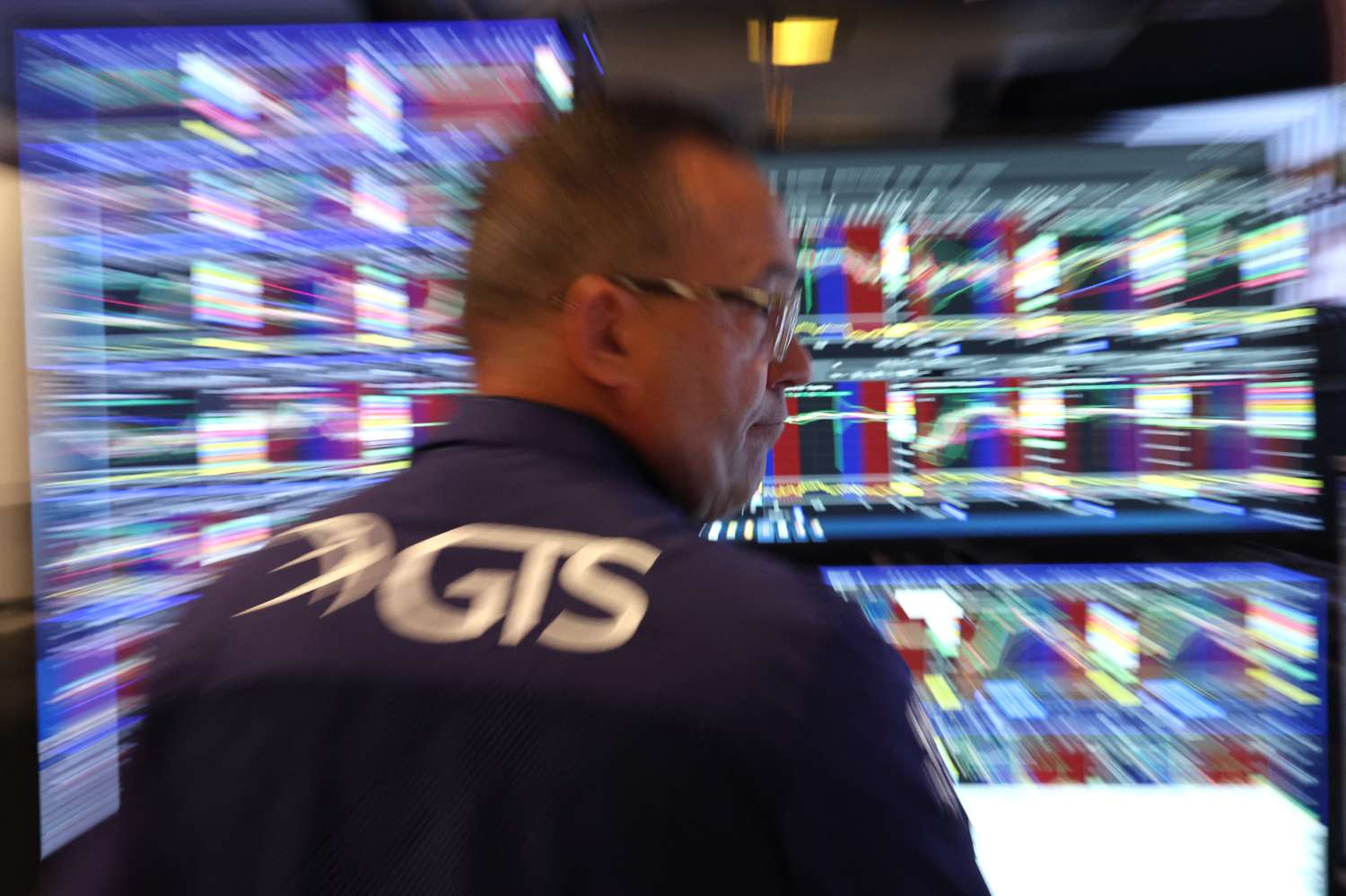Key Takeaways
Cloud computing and software provider Oracle on Tuesday reported its backlog grew to $455 billion last quarter, a 359% increase from the prior year.The company’s pipeline signaled artificial intelligence spending should remain strong for several years, sending Oracle shares sharply higher and boosting the majority of AI stocks.Wall Street analysts expressed shock on Oracle’s earnings call Tuesday, with one calling the company’s growth forecasts “truly historic.”
The artificial intelligence trade got a shot of adrenaline on Wednesday after results from database software and cloud provider Oracle suggested the AI spending bonanza has ample room to run.
Oracle (ORCL) on Tuesday reported its backlog swelled to $455 billion, a 359% year-over-year increase, after it signed four multibillion-dollar cloud deals in the first quarter of its 2026 fiscal year. Executives said the backlog is expected to surpass half a trillion as Oracle inks more big deals in the coming months.
Oracle also forecast cloud revenue would grow from an estimated $18 billion this fiscal year to $144 billion in 2030, about $50 billion more than Wall Street had forecast. Oracle said most of that revenue forecast was already reflected in its backlog, giving some investors greater confidence in the numbers. Meanwhile, the Wall Street Journal reported Wednesday that Oracle had signed a five-year contract worth $300 billion with ChatGPT creator OpenAI.
Oracle’s projections completely overshadowed lackluster first-quarter results, and sent its shares soaring as much as 43% on Wednesday.
The rising tide of robust AI spending was lifting plenty of boats on Wednesday. Shares of AI chip giants Nvidia (NVDA) and Broadcom (AVGO) were recently up more than 4% and 9%, respectively, while chip design company Arm Holdings (ARM) surged more than 8%. The PHLX Semiconductor Index (SOX) was up about 2%. Data center infrastructure provider Vertiv Holdings (VRT) jumped about 9%, while power generators Vistra (VST) and Constellation Energy (CEG) advanced 8% and 6%, respectively.
Oracle’s major cloud competitors were the only drag on the AI trade on Wednesday. Amazon (AMZN) declined more than 3%, while Meta Platforms (META) dropped nearly 2%. Alphabet (GOOG) and Microsoft (MSFT) ticked higher.
Wall Street Hails ‘Momentous’ Quarter
Wall Street’s ebullience over the results was first visible on Oracle’s earnings call Tuesday night.
“Even I’m sort of blown away by what this looks like going forward,” said Guggenheim analyst John DiFucci at the top of the question and answer portion of the call. “I tell my team, ‘Pay attention to this’—even those that are not working on Oracle—‘because this is a career event happening right now,” DiFucci added.
“There’s no better evidence of a seismic shift happening in computing than these results that you just put up,” said Deutsche Bank analyst Brad Zelnick. Others called the quarter “momentous” and the backlog growth “truly historic.”
AI Demand, Investments Expected To Remain Strong
AI investments have been driven by what many have characterized as insatiable demand for training and inference, and Oracle’s results appeared to support that assessment.
On Oracle’s earnings call, co-founder and chair Larry Ellison said an unnamed company had requested all of Oracle’s available inferencing capacity. “I’d never gotten a call like that,” Ellison said.
Big Tech’s investment in capacity to meet that demand is expected to remain robust in the coming years, supported by healthy cash flows at the biggest cloud providers and supportive tax incentives.
Cloud providers like Microsoft, Alphabet and Amazon have been key drivers of the AI infrastructure trade in recent years. Hyperscalers are expected to spend a cumulative $368 billion on infrastructure this year, with much of that earmarked for data centers and the chips and servers that fill them, according to Goldman Sachs.
Oracle on Tuesday forecast capital expenditures of $35 billion in the 12 months through May 2026, about $10 billion more than the figure executives gave as a minimum last quarter.
Tax incentives written into the recently passed One Big Beautiful Bill Act should also support AI infrastructure investment. Morgan Stanley expects the bill’s immediate capital investment depreciation provisions to boost Big Tech’s free cash flows by nearly $50 billion this year. The firm expects a sizable portion of those tax savings to be spent on AI infrastructure.

